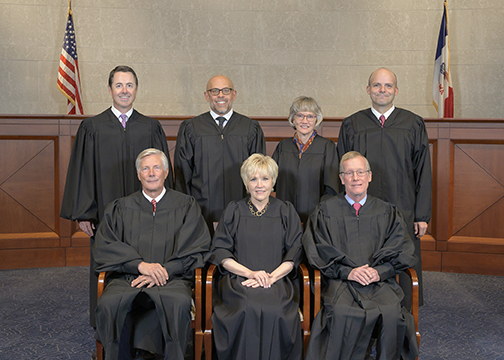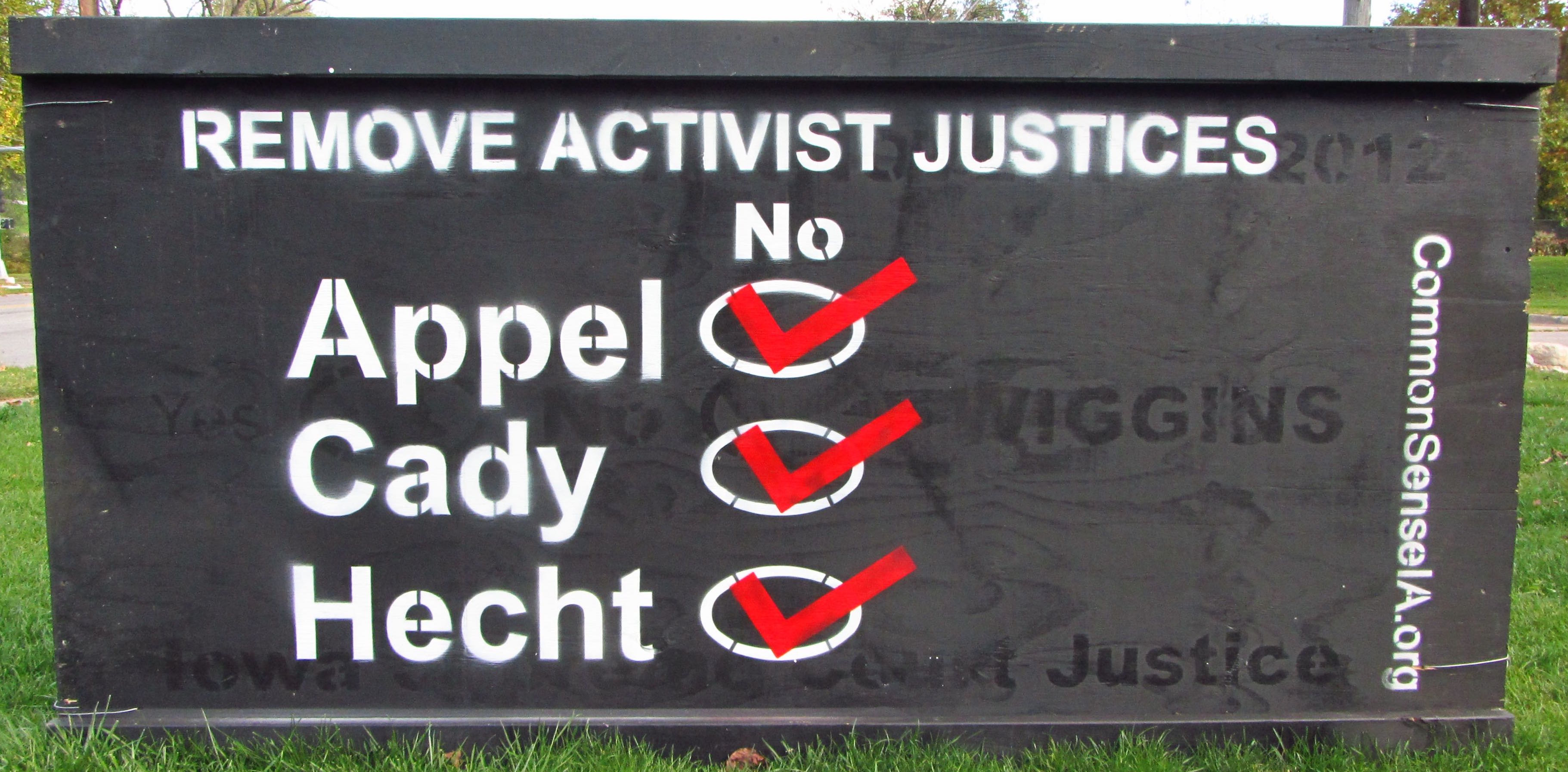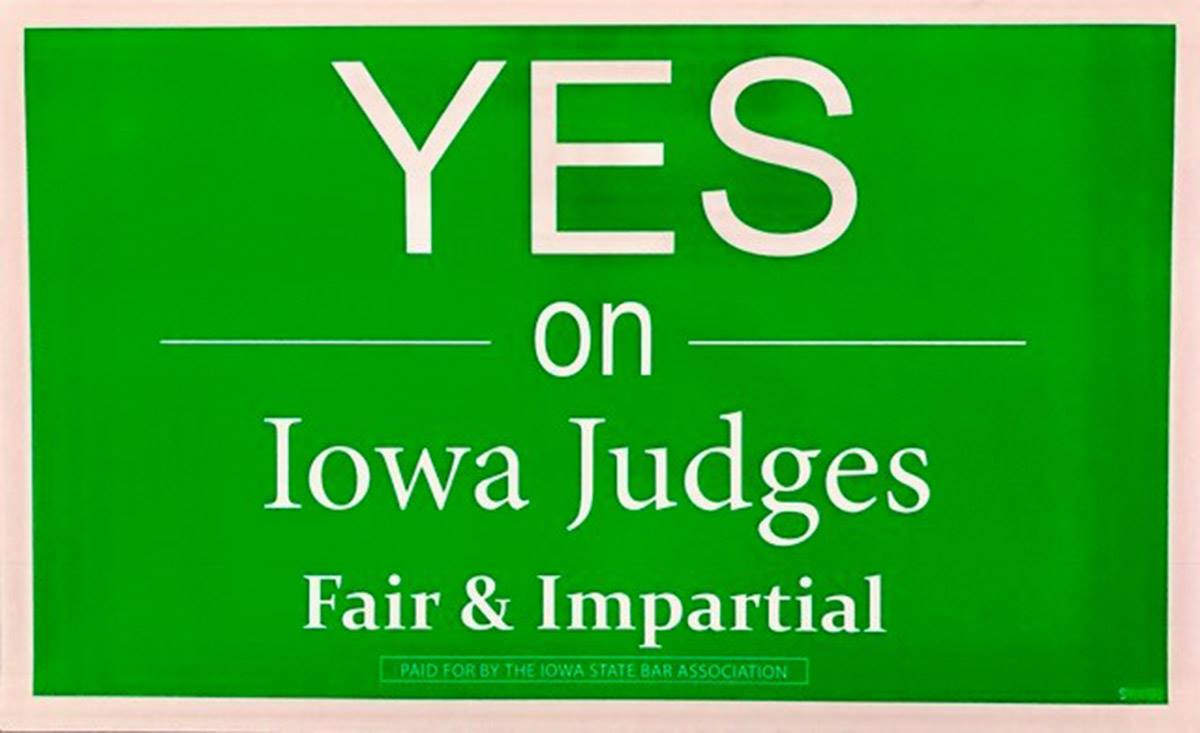The National Organization for Marriage does not plan any “campaigning or intervention” in this year’s retention elections for three Iowa Supreme Court justices, Grant Rodgers reported for the Des Moines Register on September 5. The group was the largest single funder of the two previous anti-retention campaigns, contributing more than $635,000 to help oust three justices in 2010 and more than $148,000 to the unsuccessful effort to remove Justice David Wiggins two years later.
The last three justices involved in Iowa’s 2009 marriage equality ruling will be on the ballot this November: Chief Justice Mark Cady, author of the Varnum v Brien decision, and Justices Brent Appel and Daryl Hecht. National Organization for Marriage spokesperson Joe Grabowski told Rodgers, “There’s nothing planned at this time,” adding that “We always keep our options open.”
Those options are fading fast, with early voting set to begin in Iowa on Thursday, September 29. The previous two anti-retention campaigns, led by social conservative activist Bob Vander Plaats, were well underway by the end of August 2010 and 2012. As Bleeding Heartland discussed here, Vander Plaats and his allies have not signaled any plan to go after the Iowa Supreme Court justices. It’s a remarkable admission of weakness on their part, but also a rational decision. Convincing voters to remove justices over same-sex marriage (now allowed in all 50 states) would be a tall order, especially in a presidential election year, which brings out hundreds of thousands more voters than a typical midterm election.
This year’s high-profile voting rights case could have provided fodder for an anti-retention campaign, but that scenario failed to materialize when Cady joined three other justices to uphold Iowa’s current broad lifetime ban on voting by most people convicted of felonies.
Rodgers discussed another possible peg for a campaign against Cady, Appel, and Hecht: all joined a 4-3 decision (authored by Appel), which held that “juvenile offenders may not be sentenced to life without the possibility of parole under article I, section 17 of the Iowa Constitution.” You can read the majority opinion, concurring opinions, and dissents in Iowa v. Sweet here. The majority ruling drew heavily on a 2012 U.S. Supreme Court decision, which invalidated mandatory life without parole sentences for juveniles, and several 2013 Iowa Supreme Court cases related to juvenile sentencing. Cady, Appel, and Hecht were all part of the majority in those 2013 cases.
Rodgers spoke to Lyle Burnett and Josh Hauser, who have experienced the tragedy of losing a loved one to a teenage killer. Both oppose retaining the three justices on the ballot this November, but “So far, neither Hauser nor Burnett have been contacted by any group or political organization that could elevate their personal campaigns.” Two victims’ advocates quoted in the Register said they do not support ousting Cady, Appel, and Hecht over this issue. It’s worth noting that neither the Iowa Supreme Court’s 2013 ruling in State v Ragland nor this year’s decision in Sweet guaranteed the release of any convicted murderer. Parole boards will still have discretion to approve or deny parole, based on expert assessments of whether the prisoner has been rehabilitated or still poses a danger to society.









